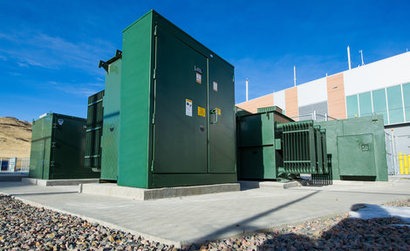
The report identified six key innovation areas and called on the government to work with industry to help guide investment towards delivery of a low-carbon, low-cost energy sector. Scottish Renewables, which is calling for half of all energy used in Scotland to come from renewables by 2030, published the new report to examine the future of our energy system across electricity, heat and transport.
“The UK Government's commitment to double the spend on energy innovation to £500 million over five years has the potential to drive dramatic advances in our energy system” said Hannah Smith, Policy Officer at Scottish Renewables. “Scottish Renewables’ new paper highlights the importance of the strategic allocation of these funds, and identifies six technology areas that have real potential to benefit from this funding, propelling British business to the forefront of a truly world-leading, next-generation energy system.”
Ms Smith added that the UK renewable energy industry has come a long way since the first hydropower and wind projects in the 19th Century, largely due to the impressive list of technical and engineering innovations coming out of the UK. She said that developing an Energy Innovation Strategy to guide DECC’s innovation programme budget would get the most out of every pound spent.
The priority areas identified by the report are wave and tidal energy, storage, floating offshore wind, low-carbon heat, systems integration and flexible networks.
The UK is already leading the world in wave and tidal energy with facilities such as the European Marine Energy Centre (EMEC) in Orkney providing cutting-edge test opportunities. Storage technologies could provide a multitude of services to the management of the UK electricity network while also empowering communities and consumers and increasing renewables capacity by storing electricity at times of low demand. Floating offshore wind could open up huge areas of the world’s deepest oceans to green energy generation and the UK is already eyeing up a global lead in this sector.
Low-carbon heat accounts for 46 percent of UK energy demand but only 4.9 percent of it was renewable in 2014. Decarbonising this sector will mean full developing new technologies, supporting their large-scale deployment and integrating them into the wider UK energy system. Systems integration would allow the UK to be ‘smarter’ in the way the country uses power and drive efficiencies, increasing energy security and reducing costs. Finally, flexible networks, according to the Committee on Climate Change, could help save consumers up to £3.5 billion per year. Securing the technology to deliver a more flexible power system will require a range of technologies such as Active Network Management, demand-side response, storage and increased interconnection, all of which are yet to be fully developed.
For additional information:

